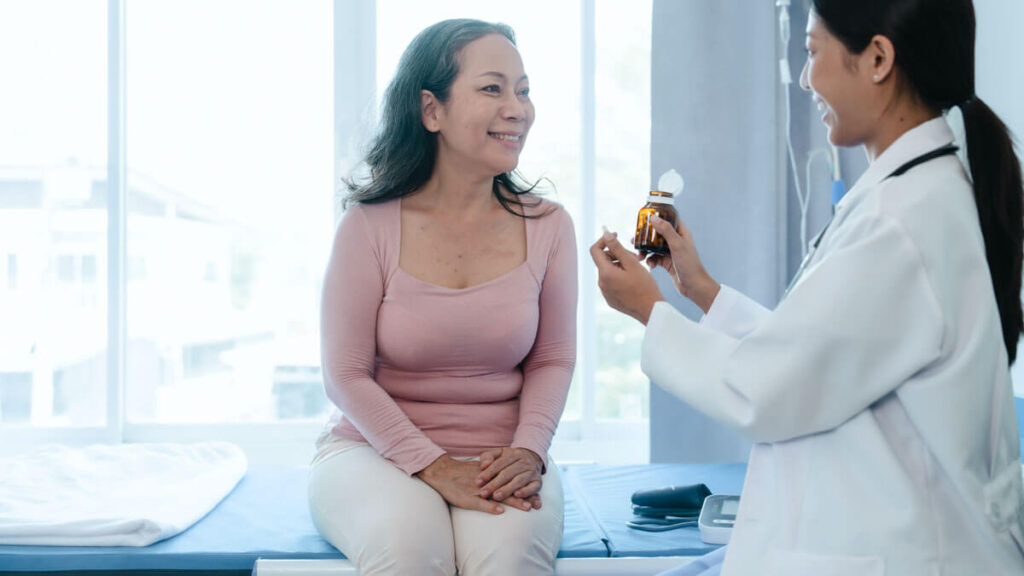Menopause and Aging Related Health Symptoms and Treatment
Abr 15
For many women, the transition through menopause represents a significant life change that brings both challenges and opportunities for personal growth. As the body undergoes natural hormonal changes, understanding and managing symptoms becomes crucial for maintaining quality of life and overall health. This comprehensive guide explores the various aspects of menopause, from common symptoms to treatment options, while highlighting the importance of professional medical support during this transition.

The Menopause Journey: What Every Woman Should Know
Menopause is a natural biological process marking the end of menstrual cycles and reproductive years. During this transition, the ovaries gradually decrease their production of estrogen and progesterone, leading to the cessation of monthly periods and the end of natural fertility. While the average age for menopause in the United States is 51, the transition can begin several years earlier during perimenopause, when hormone levels begin to fluctuate significantly.
Understanding the Stages of Menopause
The menopausal transition typically progresses through several distinct stages. Perimenopause often begins in a woman’s 40s, though some may experience changes in their 30s. During this time, the ovaries gradually produce less estrogen, leading to irregular periods and the onset of various symptoms. This stage can last anywhere from a few months to several years, with varying degrees of symptom intensity.
The official start of menopause is marked by 12 consecutive months without a menstrual period. This milestone signals that the ovaries have essentially stopped producing eggs and significantly reduced their hormone production. Post-menopause refers to the years following this point, during which women may continue to experience some symptoms while facing new health considerations related to decreased hormone levels.

Common Symptoms and Their Impact
The physical manifestations of menopause can significantly affect daily life and overall well-being. Hot flashes and night sweats, known collectively as vasomotor symptoms, affect up to 80% of menopausal women. These sudden sensations of heat often spread throughout the body, particularly affecting the face, neck, and chest, frequently accompanied by sweating and sometimes followed by chills.

Vaginal health becomes a primary concern during menopause, with many women experiencing vaginal dryness, discomfort during intercourse, and an increased risk of urinary tract infections (UTIs). The decrease in estrogen levels can lead to vaginal atrophy, causing the vaginal walls to become thinner and less elastic. This change can impact sexual health and overall quality of life, though various treatments, including vaginal lubricants and prescribed creams, can help manage these symptoms.
Sleep disturbances and insomnia frequently accompany menopause, often exacerbated by night sweats and hormonal changes. Poor sleep can contribute to fatigue, irritability, and difficulty concentrating during the day. Many women report experiencing “brain fog,” characterized by forgetfulness and problems with memory and concentration.

Comprehensive Symptom Management
Physical Health Considerations
Bone health becomes increasingly important during menopause, as declining estrogen levels can lead to accelerated bone loss. This puts women at greater risk for osteoporosis and fractures. Regular bone density screenings become crucial during this time, allowing for early intervention when necessary. Weight-bearing exercises, adequate calcium intake, and vitamin D supplementation play vital roles in maintaining bone strength.

Cardiovascular health requires special attention post-menopause, as the risk of heart disease increases significantly. Changes in cholesterol levels often occur, with many women experiencing an increase in LDL (bad) cholesterol and a decrease in HDL (good) cholesterol. Regular monitoring of blood pressure, cholesterol levels, and other cardiovascular risk factors becomes essential.
Weight management often becomes more challenging during menopause, as hormonal changes can affect metabolism and fat distribution. Many women notice increased abdominal fat accumulation, which can raise the risk of various health conditions, including heart disease and diabetes. A balanced approach to diet and exercise becomes crucial during this time.

Emotional and Mental Well-being
The psychological impact of menopause can be significant, with many women experiencing mood swings, anxiety, and depression. These emotional changes can be attributed to both hormonal fluctuations and the stress of dealing with physical symptoms. The transition through menopause can also coincide with other life changes, such as children leaving home or career shifts, which may compound emotional challenges.
Mental clarity and cognitive function may be affected during menopause. Many women report difficulty with memory, concentration, and mental sharpness. While these changes are often temporary, they can impact work performance and daily activities. Understanding that these cognitive changes are normal and typically improve with time can help reduce anxiety about these symptoms.

Treatment Options and Management Strategies
Medical Interventions
Hormone therapy (HT) remains one of the most effective treatments for managing menopausal symptoms, particularly hot flashes and vaginal dryness. This treatment can be administered through various methods, including pills, patches, creams, and vaginal rings. The type and duration of hormone therapy should be carefully considered based on individual health factors and risk assessments.
For women who cannot or choose not to use hormone therapy, several alternative medications are available. These may include antidepressants for mood management and hot flash relief, or specific medications targeted at individual symptoms. Vaginal estrogen in low doses can be used locally to address vaginal dryness and urinary symptoms while minimizing systemic effects.
Non-hormonal medications and treatments are also available for specific symptoms. These might include medications for bone health, sleep aids for insomnia, and treatments for urinary incontinence. The choice of treatments should be individualized based on symptom severity, personal health history, and individual preferences.

Lifestyle Modifications and Natural Approaches
A holistic approach to menopause management often includes lifestyle modifications that can significantly impact symptom severity and overall health. Regular physical activity plays a crucial role, helping to maintain healthy weight, bone density, and mood. Exercise can also improve sleep quality and reduce the frequency of hot flashes.
Dietary choices can influence menopausal symptoms and long-term health outcomes. A balanced diet rich in calcium and vitamin D supports bone health, while limiting caffeine, alcohol, and spicy foods may help reduce hot flashes and sleep disturbances. Some women find relief from symptoms through the incorporation of soy-based foods or other natural sources of plant estrogens.
Stress management techniques become particularly important during menopause. Practices such as yoga, meditation, and deep breathing exercises can help manage anxiety and mood changes while potentially reducing the frequency and intensity of hot flashes. Regular relaxation practices may also improve sleep quality and overall well-being.

Professional Healthcare Support at HealthCore Clinic
Comprehensive Care Approach
HealthCore Clinic offers specialized support for women navigating menopause, with a focus on personalized care and comprehensive treatment approaches. Their healthcare professionals understand that each woman’s experience with menopause is unique and requires individualized attention. The clinic’s approach encompasses regular health assessments, symptom monitoring, and adjustment of treatment plans as needed.
Here are the essential components of professional menopause care at HealthCore Clinic:
- Comprehensive Health Assessment
- Detailed medical history evaluation
- Current symptom assessment
- Risk factor analysis
- Family history consideration
- Personalized Treatment Planning
- Customized medication recommendations
- Lifestyle modification guidance
- Regular progress monitoring
- Ongoing support and adjustments
- Preventive Care Measures
- Bone density screening
- Cardiovascular health monitoring
- Cancer screening
- Mental health assessment

Expert Guidance and Support
The healthcare providers at HealthCore Clinic stay current with the latest research and treatment options in menopause care. They understand the importance of considering each woman’s complete health picture, including factors such as family history, lifestyle, and personal preferences when developing treatment plans. Their expertise extends beyond managing immediate symptoms to addressing long-term health considerations associated with menopause.
Taking the Next Step
Managing menopause effectively requires professional guidance and support. Don’t let menopause symptoms control your life. Take the first step toward better health by reaching out to HealthCore Clinic, where your well-being is their priority. Contact their office today to schedule a consultation and discover how they can help you navigate this important life transition with confidence and support.
Their experienced healthcare providers will work with you to develop a comprehensive management plan that addresses your unique needs and concerns. Whether you’re just beginning to experience perimenopause symptoms or are well into your post-menopausal years, HealthCore Clinic offers the expertise and support you need to maintain optimal health and well-being during this significant life transition.